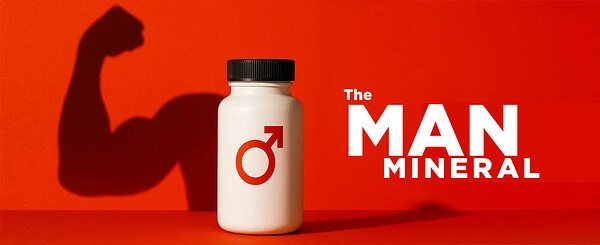Title: The Balance of Aggression: Hormones, Diet, and the Path to Success
Author: Chris Shugart
Aggression, when harnessed correctly, can be a catalyst for success and happiness. Conversely, misdirected aggression can plunge individuals into profound difficulties. This article explores the means of achieving a harmonious balance.
I. The Double - Edged Nature of Aggression
During my middle - school football days, the cheerleaders would chant, “Be aggressive! Be be aggressive!” In the context of a game, this exhortation was perfectly understandable. The underlying message was clear: play with intensity and strive for victory.
However, aggression is a two - pronged instrument. In appropriate settings, it can be highly beneficial. One should be assertive in pursuing fitness aspirations, career advancements, and even in fulfilling the roles of a dedicated husband and father.
On the other hand, aggression can have dire consequences. It can transform an individual into a violent offender, lead to rash impulsivity, or, at the very least, render them socially inept. In the realm of science, two forms of negative aggression have been identified:
Reactive Aggression
This form of aggression is emotionally - charged, typically driven by anger and a lack of self - control. Reactively aggressive individuals are prone to lashing out both verbally and physically, particularly when under duress. They have a short temper. Scientifically, this type of aggression is associated with increased amygdala activity and diminished prefrontal cortex regulation in the brain.
Proactive Aggression
Proactive aggression is characterized by its cold - blooded, calculated, and premeditated nature. It is goal - oriented, with the aggressor seeking specific outcomes such as power, control, or material gain. Examples include predatory bullies and criminals.
II. Factors Influencing Aggression
Both positive and negative forms of aggression, in addition to environmental factors, are surprisingly influenced by hormones and diet.
A. Increasing Good Aggression
Contrary to popular belief, most people still associate testosterone with negative forms of aggression, despite a wealth of contrary evidence. Multiple studies and meta - analyses have revealed that the relationship between testosterone levels and “bad” aggression is complex and tenuous.
Some research indicates that men with high - normal testosterone levels may experience slightly more hostile thoughts. However, these thoughts rarely translate into overt actions, as they remain in control. Other studies suggest a minor increase in risk - taking behavior, which is not always negative. Most research actually shows a connection to “positive” aggression. Men with higher testosterone levels are more competitive, and the hormone even promotes prosocial behavior.
Conversely, men with low testosterone levels are often more irritable and easily provoked. For instance, they may display short - tempered responses or reduced patience in social situations, which can resemble anti - social behavior.
To enhance “good” aggression, it is crucial to ensure that testosterone levels are adequate. Consider getting tested and, if necessary, undergoing Testosterone Replacement Therapy (TRT). If your testosterone levels are low - normal and you notice a decline in positive aggression, you can elevate them to high - normal by taking a natural testosterone booster such as Longjack. Ensure that you use an adequate amount of the proven form (LJ100) in the appropriate delivery system. Biotest Omega - Man (available on Amazon) meets these requirements.
B. Decreasing Bad Aggression
Reactive and proactive aggression are clearly detrimental. However, a recent meta - analysis involving nearly 4000 participants has found that taking fish oil can significantly reduce both types of aggression. The potential mechanisms include omega - 3's role in enhancing brain function, reducing inflammation, and modulating neurotransmitter systems related to impulse control and emotional regulation.
Overall, there is an approximate 30% reduction in negative aggression, encompassing physical, verbal, and relational aspects. Fish oil appears to be effective for a wide range of individuals, from overly aggressive children to convicts.
In essence, sufficient intake of omega - 3 fatty acids promotes calmness, mental clarity, stability, and self - control, all of which are markers of inner strength.
The studies in the meta - analysis used varying amounts of fish oil, with an average of 1180 mg of combined EPA and DHA per day. Our fish oil supplement contains more than double this amount. Take 2 - 3 softgels of Flameout (available on Amazon) daily.
In conclusion, aggression is a double - edged sword. By attending to your testosterone and omega - 3 requirements, you can effectively and powerfully manage this complex trait.
Reference
- Liu, S., Raine, A., Venables, P. H., et al. (2024). Effects of omega - 3 supplementation on aggression: A meta - analysis of randomized controlled trials. Aggression and Violent Behavior, University of Pennsylvania.





